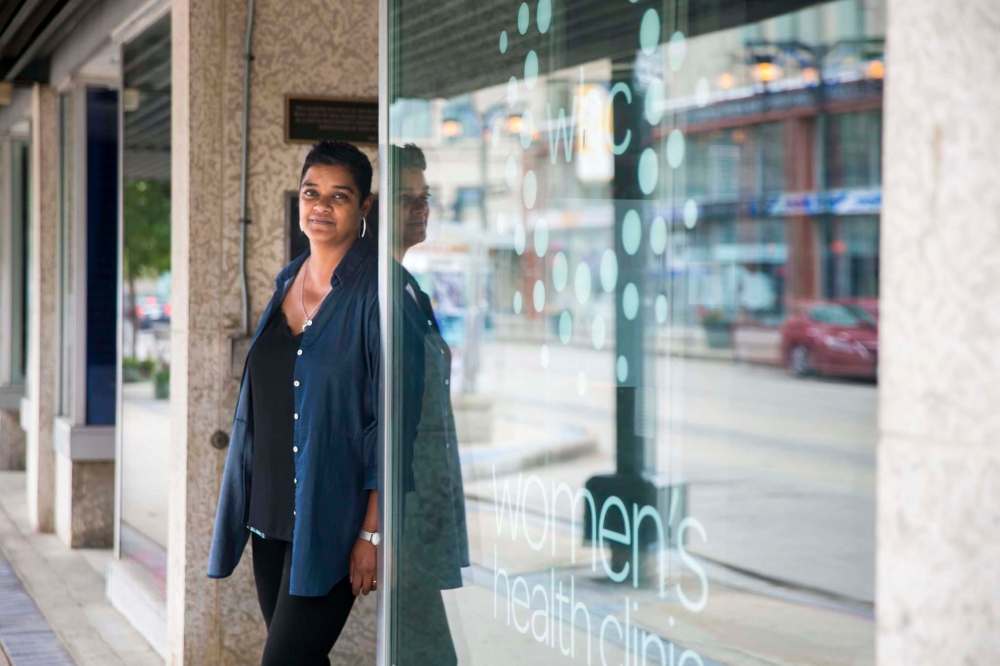Skin shade, postal code can colour casual drug-use perceptions, weed forum told
Advertisement
Read this article for free:
or
Already have an account? Log in here »
To continue reading, please subscribe:
Monthly Digital Subscription
$0 for the first 4 weeks*
- Enjoy unlimited reading on winnipegfreepress.com
- Read the E-Edition, our digital replica newspaper
- Access News Break, our award-winning app
- Play interactive puzzles
*No charge for 4 weeks then price increases to the regular rate of $19.00 plus GST every four weeks. Offer available to new and qualified returning subscribers only. Cancel any time.
Monthly Digital Subscription
$4.75/week*
- Enjoy unlimited reading on winnipegfreepress.com
- Read the E-Edition, our digital replica newspaper
- Access News Break, our award-winning app
- Play interactive puzzles
*Billed as $19 plus GST every four weeks. Cancel any time.
To continue reading, please subscribe:
Add Free Press access to your Brandon Sun subscription for only an additional
$1 for the first 4 weeks*
*Your next subscription payment will increase by $1.00 and you will be charged $16.99 plus GST for four weeks. After four weeks, your payment will increase to $23.99 plus GST every four weeks.
Read unlimited articles for free today:
or
Already have an account? Log in here »
Hey there, time traveller!
This article was published 11/07/2018 (2728 days ago), so information in it may no longer be current.
Women’s Health Clinic executive director Nadine Sookermany was at a barbecue in River Heights recently when one of the hosts pulled out some marijuana and started rolling a few joints for the guests.
“I was looking around, folks were lighting up and enjoying,” Sookermany told a crowd of about 100 people Tuesday night during a forum on cannabis and health hosted by the Manitoba Schizophrenia Society.

“Most of the people in the circle were professionals; I would see lawyers, accountants — everyone ended their very long day and felt like they needed to relax.”
Sookermany didn’t partake — not that she was judging, she said — but she started thinking about whose recreational drug use is considered acceptable, and whose isn’t.
“Folks were smoking, there were children there…. This group were upper- to middle-class white folks,” she said.
“I had this moment of — if this were a different group of people, in the North End of the city, with a different lens placed over the group, this would look quite different.”
“Child and Family Services, police perhaps, other folks, neighbours might be peering over wondering, ‘Hmm, there’s a pretty strong smell of cannabis floating over that fence.'”
“Folks were smoking, there were children there…. This group were upper- to middle-class white folks… if this were a different group of people, in the North End of the city, with a different lens placed over the group, this would look quite different.”–Nadine Sookermany
For the mostly white audience at the forum, Sookermany’s anecdote illustrated an uneasy truth: the colour of our skin can shape how society perceives our substance use.
Sookermany also introduced the crowd to the idea of harm reduction, a public-health approach that acknowledges individuals’ drug use and addresses potential harms without demanding abstinence. From a health-care perspective, she said, condemning people who use drugs can cause more harm.
“We try to create an environment where people feel comfortable disclosing, and therefore accessing, education, increasing dialogue, making a plan for themselves and their health care, regardless of where they are at.”
The upcoming legalization of recreational cannabis can be an opportunity to talk about harm reduction in the context of women’s health, Sookermany told the Free Press.
“Because there’s so much judgment, right? And that stigmatization around all kinds of drug use, but in particular everyday cannabis use, even medicinal cannabis use,” she said.
“We know some folks are wondering, ‘I’m pregnant, I need (cannabis) to help me manage my pain, how do I do that?’ Those are questions, I think, that we want to work with folks to explore.”

The taboo topic of drug use during pregnancy is particularly important to discuss with harm reduction in mind, Sookermany said.
“Pregnant women use drugs, they use alcohol, they use tobacco and we consider those drugs as well. It’s really about encouraging them to make the best decisions for themselves and, again, not stigmatize, not make them feel like that’s the wrong choice.”
With the right kind of support, many women who use drugs will make their own decisions to stop during pregnancy, she said.
“Other women continue to face addiction and health challenges, and our role is to support them in whatever choices they make.”
Alcohol and tobacco remain the most common drugs used by expectant mothers, she said.
“Pregnant women use drugs, they use alcohol, they use tobacco and we consider those drugs as well. It’s really about encouraging them to make the best decisions for themselves and, again, not stigmatize, not make them feel like that’s the wrong choice.” –Nadine Sookermany
Sookermany was one of seven panellists who made presentations and answered audience questions at the 2 1/2-hour Centre culturel franco-manitobain event.
Addictions Foundation of Manitoba medical director Dr. Ginette Poulin, Manitoba Schizophrenia Society executive director Chris Summerville and Canadian Mental Health Association Manitoba and Winnipeg executive director Marion Cooper shared their perspectives on the health risks of cannabis.
Winnipeg Police Service Const. Jason English provided an overview of how law enforcement will approach drug-impaired driving, and consultant Wendy Hofford discussed how employers should deal with the issue of cannabis in the workplace.
Daniel Sitar, a professor emeritus of pharmacology at the University of Manitoba, spoke on behalf of the Alzheimer’s Society of Manitoba, focusing on how cannabis may interact with other drugs commonly used by elderly patients.
With legalization on Oct. 17 fast approaching, Sitar offered a word of warning to Canadians with questions searching for answers.
“The internet is the biggest garbage can in the world,” he said. “And information is not knowledge; information guides the development of knowledge.”
solomon.israel@freepress.mb.ca @sol_israel



